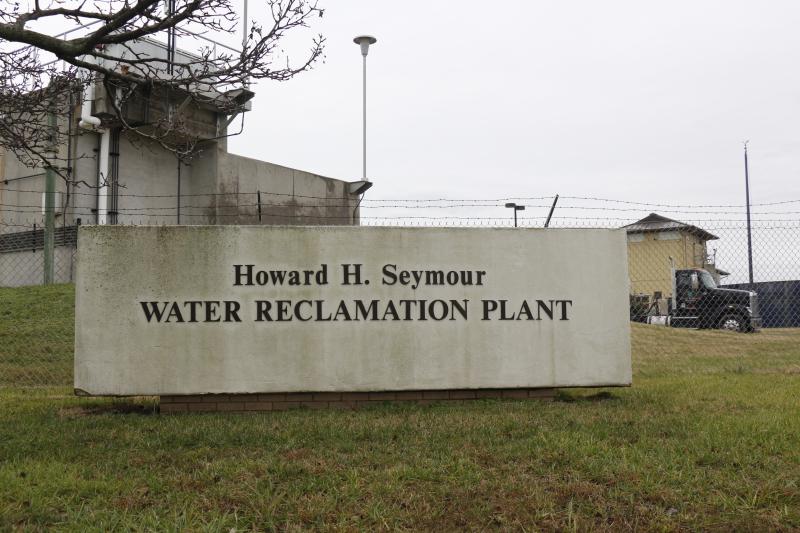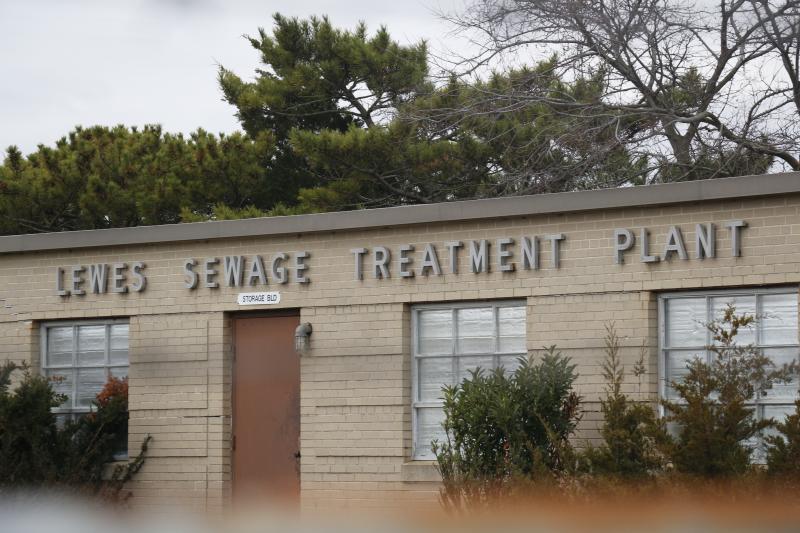The Lewes Board of Public Works wastewater treatment plant on American Legion Road needs to be upgraded or decommissioned, a consultant said in a recent report.
The consultant GHD said there are three main options: harden the plant, relocate the plant or develop a partnership with Sussex County. BPW President Tom Panetta said doing nothing is not an option.
Panetta and BPW General Manager Austin Calaman explained the pros and cons of each proposal at a recent meeting. Relocating or entering into a partnership with Sussex County can be done a few different ways. Both officials believe that while action is needed, the most important thing – because of the capital investment – is for the public to understand and voice their preference. Board members received the report in November and accepted the study during their December meeting.
Sussex County received the study Dec. 6, and Sussex County Council President Mike Vincent said they are waiting for BPW officials to pick an option. BPW officials said they would like to choose the option that appeals the most to ratepayers.
“We, as a board, are waiting to get the public’s comment,” Panetta said. “If the public wants to spend the extra money and not go with the county, so be it, but they need to understand the cost implications of that.”
GHD performed a multi-criteria analysis to evaluate each option, utilizing factors outside of the cost. Things such as environmental risks, water quality and operational complexity were factored in more than construction impacts and land use within the city. The higher an option scored using the criteria, the better.
Hardening the plant
Included in the proposal to harden the plant from the effects of climate change are plans to build a perimeter dike around the facility and to construct on-site fuel storage.
Upfront costs are estimated at $23 million, and with an additional $75.5 million in operating and maintenance fees, will bring the project’s lifecycle cost to $98.5 million. The option was given a score of 65, which was tied for the lowest.
“You have these very expansive wetlands ... when the tide comes in and the wind is perfect, [water] just comes right in and it floods American Legion [Road] out toward Savannah Road,” Calaman said.
Relocation
BPW officials have three different choices if they choose to relocate the plant: spray irrigation and/or rapid infiltration beds, utilizing the existing Lewes-Rehoboth Canal outfall, or constructing a new ocean outfall. Relocating would be the most expensive route to take, requiring significant startup capital. BPW officials say no sites have been pinpointed.
Constructing a new ocean outfall and relocating would cost $227 million over the lifespan of the project, while relocating and using the existing outfall is estimated at $154 million.
The former option scored a 65 in the analysis, while the latter came in at 66.
Relocating and implementing spray irrigation and/or rapid infiltration beds received a score of 66 accompanied by a $196 million price tag. Additional land would need to be purchased.
Partnership
Sussex County is prepared to enter into a partnership with the BPW. One solution is to continue using the existing canal outfall, transferring effluent into a new wastewater treatment plant in Sussex County. Another option is to construct a wetland and upgrade the network for wastewater transfer to a new plant.
A lifetime cost is estimated at $56 million; the option received a score of 95. Using the existing outfall would be easier for permitting and schedule, and the construction of a wetland would be favorable for the community and environment. The report indicates there are uncertainties in constructing a wetland, but the BPW would not be required to pump treated effluent back to Lewes.
Calaman spoke favorably about the type of partner the county has been throughout a current flow agreement that allows the county to pump wastewater to Lewes’ plant and the BPW to send effluent to the county’s Wolfe Neck facility. The county would split the cost if the BPW chooses to partner with them, Calaman said.
Public comment
BPW officials are focusing on how each study would affect the rates of residential customers as they gear up for a Jan. 23 workshop. Calaman said he hopes to present a tangible product without overwhelming attendees with irrelevant information.
The public workshop is scheduled for 6 p.m., Monday, Jan. 23, at the Rollins Community Center. BPW officials said they will mail reminders to encourage ratepayers to attend or comment, stressing that public opinion will guide the board’s decision.









































